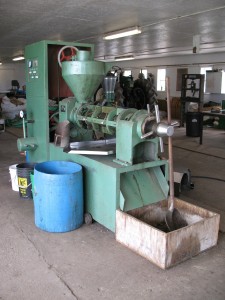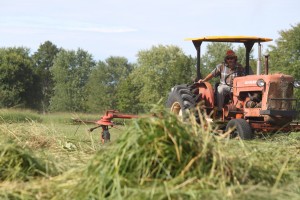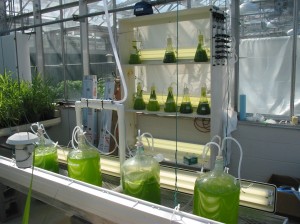21 Mar 2016
Vermont biodiesel success for Bourne’s Energy

Bourne’s Energy delivers Vermont biodiesel to customers.
Bourne’s Energy began to incorporate blended Vermont biodiesel into their fuel business in 2013, due in part to a grant from the Vermont Bioenergy Initiative paying for a facility to produce blended biodiesel. Since then the company has been able to replace over 300,000 gallons of fossil fuel with biodiesel. Bourne’s flagship B15 Biodiesel blend, dubbed “Bioheat®” for customer home heating needs, is a benefit to all aspects of the business—both financially and environmentally, not to mention positive to their growing sustainability image. Additionally, the company has been able to run their fleet from April to November on biodiesel, as well as operate pumps in Morrisville, Hardwick, Lyndonville and Montpelier that offer customers on/off road diesel or biodiesel.
“It’s been a success in every way to this point, and we’ve always had the privilege of a good product,” Peter Bourne stated referring to the biofuel coming from White Mountain Biodiesel in New Hampshire. The oil that White Mountain Biodiesel produces is from recycled cooking oil, an important attribute for Bourne’s Energy. Sustainable biodiesel is valued by Vermonters and fits into the local production for local use model promoted by the Vermont Bioenergy Initiative while avoiding controversies that arise from the food versus fuel debate.
Customers and local residents alike provided vastly positive feedback when Bourne’s began incorporating biodiesel into the mix and better yet, customers found the Bioheat® fuel blend to be quiet with no disruption in performance. Biodiesel is just “part of business as usual now,” Bourne concludes.
A long-time Bourne’s Energy customer noted, “I heat my home with oil and never thought much about it until my granddaughter helped me pay my bill online and saw that I was being delivered Bioheat®. I thought, ‘What the heck am I getting?’ I read all about it and found it allowed me to reduce my carbon footprint without doing a thing! It’s got me on the right track for doing what I can for cleaner air, our environment and a whole long list of things.”
In addition to the biodiesel-blended fuel, Bourne’s is expanding their bioenergy product line by further developing the infrastructure for their four year old bulk pellets program. Bourne’s sources quality pellets locally in Vermont and when demand exceeds supply, they source from New Hampshire, but choose not to go further for both economic and environmental reasons.
“We are a company really trying to reduce people’s consumption by supplying the right product at the right time. We can show it, we mean it, we’re doing it, and we’re not just flash,” Bourne shared in a recent conversation. The success and integrity of Bourne’s Vermont biodiesel work backs this claim, and positions Bourne’s Energy as a meaningful contributor to the development of Vermont Climate Economy.
09 Apr 2014
Emerging Frontiers in Bioenergy
Green Energy Times is an independent media company that publishes and energy independent website and newspaper. The power used to design the print publication and operate the website is completely off-the-grid and solar powered. Green Energy Times publishes all ranges of renewable energy and climate action news and articles from across Vermont and the region.
The Vermont Bioenergy is pleased to be authoring a regular column entitled Emerging Frontiers in Bioenergy. We plan to share each upcoming article on the Field Notes part of this website, and to get you up-to-speed, we wanted to share the first three in the series:
Oilseeds, Grass & Algae Each Hold a Place in Vermont’s Renewable Energy Future
This article reviews how bioenergy refers to renewable energy fuels and feedstocks derived from forest and agricultural biomass, liquid biofuels, and biogas to be used for heat, electricity, or vehicle fuel.
Grass Energy: State of the Science
This article explores the potential for grasses grown on marginal lands in Vermont to meet a portion of the state’s heating demand and reduce the consumption of fossil fuels and the study being conducted to assess the opportunities.
From Ponds to Fuel Tanks: The Role of Algae in our Energy Future
In this article, algae production is discussed as an excellent source of oil for making biodiesel, which could displace substantial volumes of petro-diesel for heating and transportation.
Learn more about Green Energy Times at www.GreenEnergyTimes.net and the Vermont Bioenergy Initiative at www.VermontBioenergy.com.








